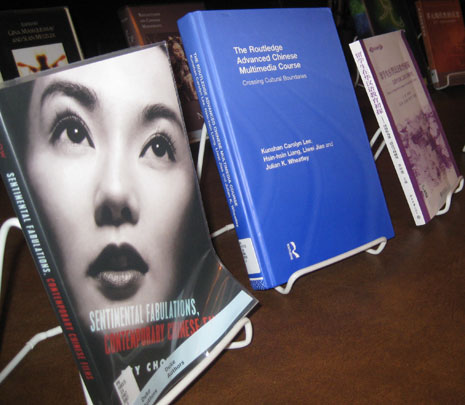
Scholarship on China at Duke is more robust than ever and especially important as the university increases its ties with the global power, said faculty and administrators at a book party celebrating China studies at Duke on Wednesday.
Provost Peter Lange said that as China becomes a larger part of Duke's strategic profile, a successful relationship with the country depends on the breadth of scholarship at the university.
"This is an enormously auspicious event," said Lange. "This will be where our fundamental relationship with China should be."
Nearly 20 books on China from Duke scholars across the humanities and social sciences were on display at the event organized by Sucheta Mazumdar, associate professor of history and author of "From Orientalism to Postcolonialism: Asia, Europe and the Lineages of Difference."
William Reddy, chair of the history department, said China is an important challenge for Western scholarship.
"It's great to see such an array of topics being explored from health, film, popular culture, social structure, markets -- it reflects the vigor of the field," he said.
"As we've started to understand better the role we can play as an institution -- how we can serve and help better understand how modern China influences everything we do, it is extraordinary the depth we have in these fields," said George McLendon, dean of Trinity College of Arts and Sciences.
Srinivas Aravamudan, dean of the humanities at Duke, noted that the breadth of scholarship represented at the event was especially important for the humanities.
"For the humanities we are embarking on a phase when we want to be more ambitious," he said. "This connects with Duke's existing priorities -- international, interdisciplinary and knowledge in service of society."
Gilbert Merkx, vice provost for international studies, noted that the strength of Duke's scholarship on China is a product of several years of development, citing the recent growth of the Asian Pacific Studies Institute, history department and Asian language programs.
"Something qualitative has happened recently as our efforts have culminated in a vibrant intellectual community," he said.